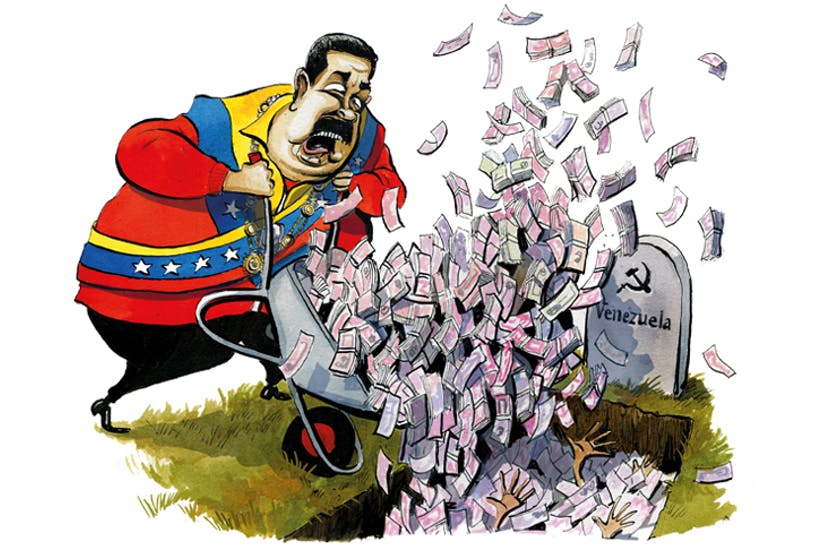Venezuelans are preparing for a difficult Christmas – the worst of recent times. The middle-class families I have spoken to in Barquisimeto, Venezuela’s fourth largest city, are not able to afford even the most basic of ingredients for their traditional Christmas meal of pork leg, hallaca, ham and potato salad. These are families who, in the 90s, owned two cars, bought second homes, studied abroad and went on regular holidays to the Andes or the coast. They enjoyed a standard of life much like middle-class Britain, but now their salaries and pensions won’t even stretch to cover a weekly shop. The average Venezuelan lost 11kg in weight last year alone. My Venezuelan acquaintances living here in the UK are increasingly concerned by the pictures they see on social media of friends back home, many of whom are unrecognisable.
When Hugo Chavez was elected democratically in 1998 he inherited an oil-rich nation with reserves bigger than even Saudia Arabia. Chavez made a good first impression on Venezuelan voters by reinvesting oil revenue in welfare programmes and scholarships for the poorest. The middle-class families I talked to all attribute their own ascent from poverty into stability to these scholarships and the employment opportunities they generated.
But goodwill towards the Chavez government didn’t last. By the time Nicholas Maduro took over from Chavez after his death in April 2013, the economy was in crisis; companies had been nationalised and the judiciary system and police were both under government control. Oil prices crashed and, by August this year, the annual inflation rate had reached 40,000 per cent. The situation became so bad that the government slashed off five zeros off the currency and launched a new one. Worst of all, Venezuelans have no means of removing Maduro from power: last year he held what was widely castigated as a show election to establish his newly formed Venezuelan Constistuent Assembly to which only Maduro-supporting lobbyists were appointed.
So what now for Venezuela? Could Maduro ever be deposed? Some Venezuelans are pinning their hopes on Brazil’s new right-wing president Jair Bolsonaro who labelled the Maduro regime ‘murderous and despicable’ during his election campaign and pledged to ‘do whatever is possible to see that government deposed’. But now that Bolsonaro is in office, would he seriously consider intervening and would he have any international allies if he were to do so?
Donald Trump spoke publicly last year about his desire to see the end of the Maduro regime. His remarks were largely dismissed at the time as populist bluster. And yet the New York Times reported in September that the White House had met with Venezuelan military officials to discuss how democracy might be restored.
Regardless of whether there is any credence to this plotting, it is difficult to imagine either the US or Brazil initiating a direct military intervention: the US has a chequered history of political meddling in South America which has not been forgotten abroad and Brazil is unlikely to want to launch an attempt to depose Maduro on its own. Even if a US/Brazil-backed coup was initiated, there would be no guarantee of success: Hugo Chavez himself was almost unseated by an internal military coup in 2002 but was back in power three days later. And who is to say that the military officials replacing Maduro will be any less corrupt?
Venezuela’s economy has now reached the same crisis point as Zimbabwe did under Mugabe. The question now is whether the political appetite for intervention will be higher in the case of Maduro than it was with Mugabe, who was largely left alone in spite of the economic chaos he inflicted on his people. The greatest fear Venezuelans have is that, as with Zimbabwe, the international community will continue to watch from a distance as their beloved and once prosperous country suffers a drawn-out death.







Comments